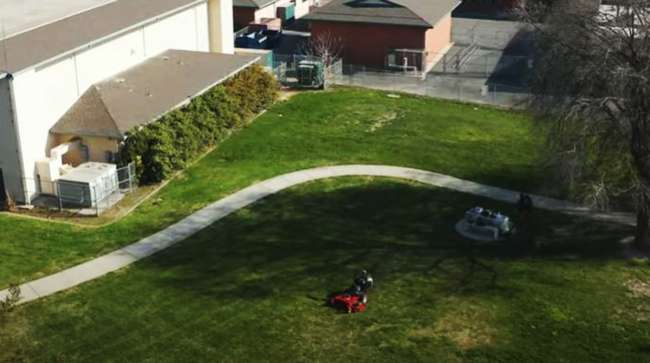Robotics Startups Seek to Build a Better Self-Driving Lawn Mower

[Stay on top of transportation news: Get TTNews in your inbox.]
Hundreds of well-funded robotics startups are working on self-driving cars, self-piloting drones and shelf-diving warehouse robots. One lesser-known area that’s beginning to draw the attention of investors: autonomous lawn mowers.
Electric Sheep Robotics Inc., which makes an add-on device for commercial mowers, plans to announce a $21.5 million funding round Jan. 25 led by Tiger Global Management. It’s one of several companies with their eyes on green pastures.
Lawn care is an unfamiliar domain for technology investors, particularly when it requires building expensive machinery. However, a recent explosion of capital into the private markets has enabled an eclectic mix of business ideas to flourish. Tiger is a primary force. The firm, once a fairly traditional hedge fund, was one of the most active startup financiers last year.
A couple of factors drew Tiger to lawn mowing. For one, turf grass takes up about 40 million acres in the U.S., according to Tom Cook, professor emeritus of horticulture at Oregon State University. That is on par with the nation’s wheat crop. And automation could alleviate worker shortages. Last year was the worst labor market for lawn care in recent history, according to the National Association of Landscape Professionals, a trade group.
“Automation of the $115 billion outdoor maintenance market is an enormous opportunity hiding in plain sight,” Griffin Schroeder, the partner at Tiger who led the round, said in a statement.
Automated agriculture was on display this month at CES, the biggest technology trade show in Las Vegas. Deere & Co. showed off an autonomous tractor there. Past conferences have showcased robot mowers, and there are several for home use available today for as little as $1,000. Electric Sheep Robotics competes with companies like Future Labs V Inc., a Santa Monica, Calif.-based startup developing an autonomous commercial mower called Graze.
Naganand Murty started Electric Sheep in 2019 with Jarrett Herold, the operating chief, and Gunjit Singh, the product chief. The venture provided an unexpected opportunity to combine Murty’s degree in aerospace engineering with his experience as an entrepreneur on a previous company seeking to prevent infant hypothermia. The company had raised about $4.2 million before the deal led by Tiger.
Electric Sheep’s product, called Dexter, can handle more space than many alternatives and is better-funded, said Murty. The company’s biggest customer is a university on the East Coast with 175 acres of lawn, they said, declining to identify the school.
Want more news? Listen to today's daily briefing above or go here for more info
Electric Sheep structures customers’ monthly costs in a way that’s comparable to local wages. That also means fees vary considerably depending on where the customer is based. Murty declined to provide a price range. Strauser Nature’s Helpers, a commercial landscaper in East Stroudsburg, Pa., uses Dexter to reduce the time workers spend on mowing. “Electric Sheep frees up my team to focus on more sophisticated tasks like weeding, tree trimming, planting,” said Zech Strauser, the company’s president.
Dexter can be attached to popular models of gas or electric commercial mowers. It draws data from lidar, GPS and ultrasonic sensors and is programmed to shut off if an animal or object gets in the way, just as robots in a warehouse or manufacturing facility are designed to do. “There is nothing trivial or prosaic about the robot we’re building,” Murty said. “It’s solving a real need for enterprises.”
Light and temperature variations outdoors present engineering challenges beyond what a Roomba would face. The founders suggested the lessons from mowing could be applied to cleaning or snow removal. “All engineers love to work on things with real impact,” Herold said. “This is a very tractable challenge.”
Adding to the company’s tech bona fides is its name, a reference to Philip K. Dick’s Do Androids Dream of Electric Sheep?, the novel that inspired Blade Runner. Dexter, however, was not named after the popular serial killer TV show, the founders said. That’s only a coincidence.

